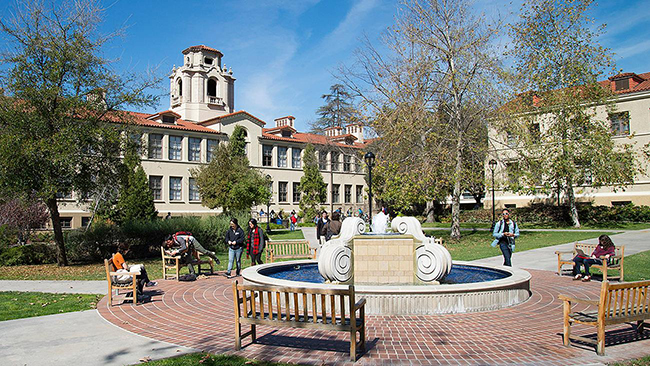Citrus College awards degrees; uncertain school budget future looms
Associate’s degrees were conferred on 1332 students at Citrus College’s recent graduation, a record number for the local community college.
The June 16 ceremony marked the school’s 96th commencement.
“The all-time high is linked to the fact that, with the economy faltering, more students have been entering the community college system because it is such a cost-effective opportunity,” said Paula Green, Citrus College director of communications.
Forty-two students graduated with a brand-new type of diploma, a transfer degree.
The Student Transfer Achievement Reform Act, signed into law by former Governor Arnold Schwarzenegger in September 2010, streamlines participating students’ matriculation into California State Universities.
Students graduating with an Associate in Arts (AA) for Transfer or an Associate in Science (AS) for Transfer are guaranteed admission into the CSU system with junior status. They are granted priority consideration for acceptance to CSU schools and programs equivalent to their community college major.
Citrus offers AA transfer degrees in communication studies, psychology and sociology and AS transfer degrees in administration of justice, early childhood education and mathematics.
Striving workforce, crippling cuts
When a student graduates, transfers or earns a vocational education certificate, it represents the kind of success Edward Leamer, director of the UCLA Anderson School of Management, says is crucial to economic recovery.
“Good jobs in the United States in the 21st century will require humans to do things that are not suited to the capabilities of faraway foreigners, robots or microprocessors,” Mr. Leamer observed in a recent UCLA economic report. “We need a workforce that can think creatively and solve the new problems, not merely recall the solutions to old problems.”
UCLA economists have projected the state will experience double-digit unemployment through mid-2013. With unemployment hovering at 10.8 percent, California has the third highest jobless rate in the country.
Community colleges are an increasingly attractive option for cash-strapped families and for displaced workers needing retraining.
This demand coincides with crippling cuts to the community college system. Some $5.7 million has been slashed from Citrus College’s budget for the 2011-2012 fiscal year. As a result, the college will cut 155 class sections between now and the 2013 spring semester.
“Right now, there seem to be more students wanting to go to community colleges,” said Sue Keith, a member of the Citrus Community College Board of Education who lives in Claremont. “And we’re losing the ability to serve those students.”
Students who manage to find a place on Citrus College attendance sheets face a $10-per-unit increase starting this summer. The hike, which takes fees from $36 to $46 per unit, is the third increase since spring of 2007.
California community colleges are still a bargain, considering national rates. Ohio residents are charged $79 per credit hour, students in Vermont pay $223 per credit and students seeking degrees in New York pay $205 per credit.
Despite their enviable price, California community colleges are beginning to see reduced enrollment, as students grow discouraged by reduced class offerings, Ms. Keith said.
The local trustee emphasizes the importance of the November election, which will see voters deciding on Governor Jerry Brown’s tax measure and 2 measures aimed at funding public education. If the governor’s tax is voted down, community college budgets will be reduced by an additional $300 million. This means a $3 million impact on Citrus College.
Ms. Keith urges voters to turn out at the election to support education.
“The community college system and public education in general is the backbone of democracy,” Ms. Keith said. “That’s how we maintain democracy—by having an educated citizenry.”
—Sarah Torribio
storribio@claremont-courier.com










0 Comments